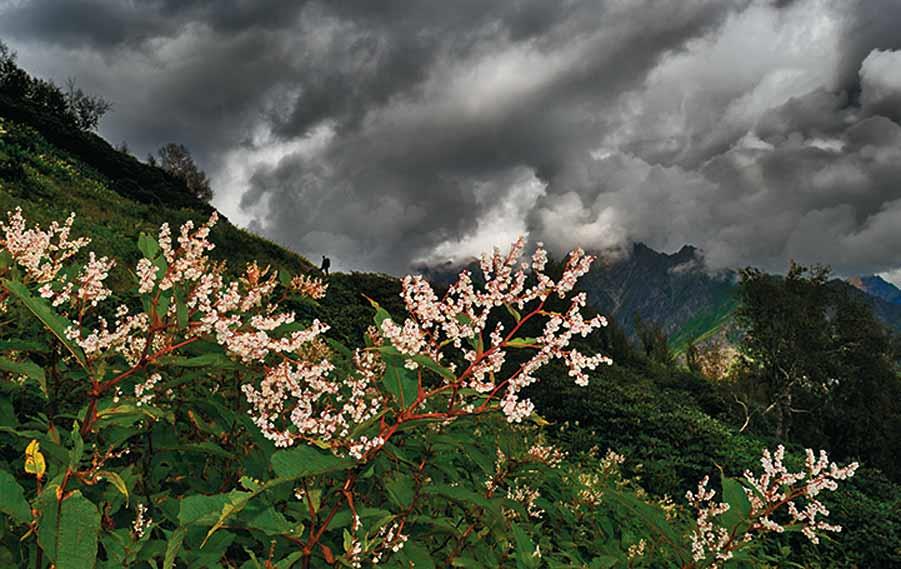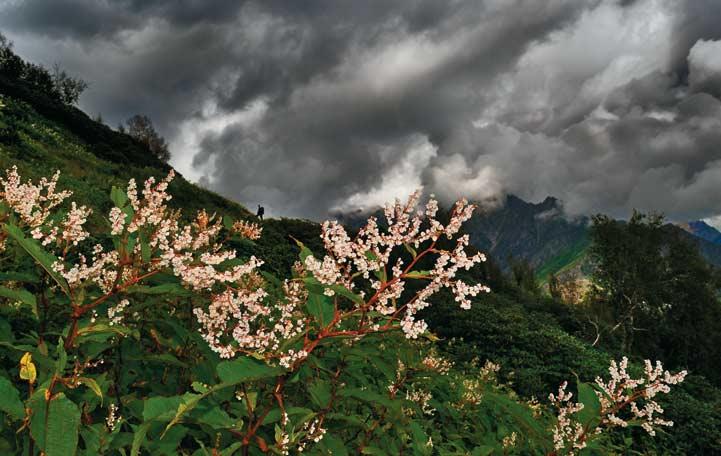
Day 1: His outline etched against that cloud-choked sky, Manu pauses a moment to catch his breath and smell the fragrance of flowers on the way to Lama Dugh (3,020m) from Manali. While the gradient and thick undergrowth make the hike punishing even on the brightest day, the darkest hours are made bearable by blossoms that quilt the terrain.
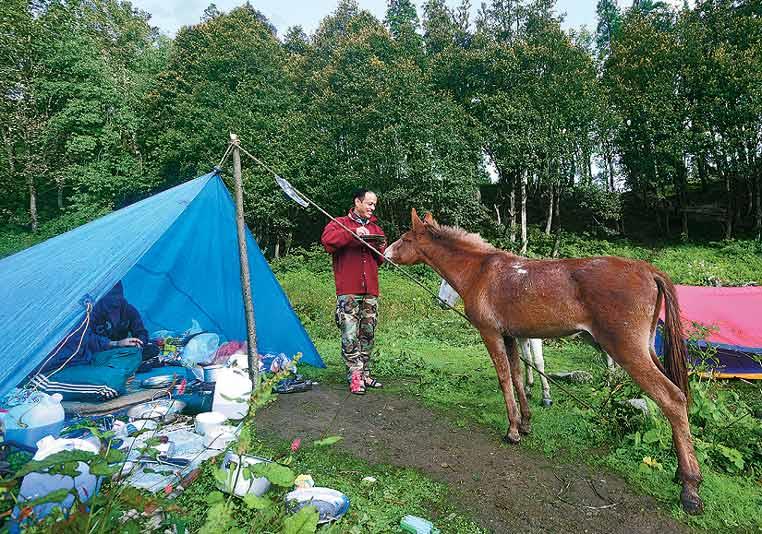
Days 2-3: Too tired to graze and beaten back by armies of leeches at Lama Dugh, our mules resort to begging for food-rewarded in this instance with rice and Nutrela. The trail-less five-hour journey to Riyali Thach (3,435m) is not strenuous, so walking the Gaddi trail to Duppu (3,676m) the next day is an option that should not be passed up. A nameless section near Duppu offers a stunning landscape of bizarrely shaped boulders, some of which offer good shelter against rain.
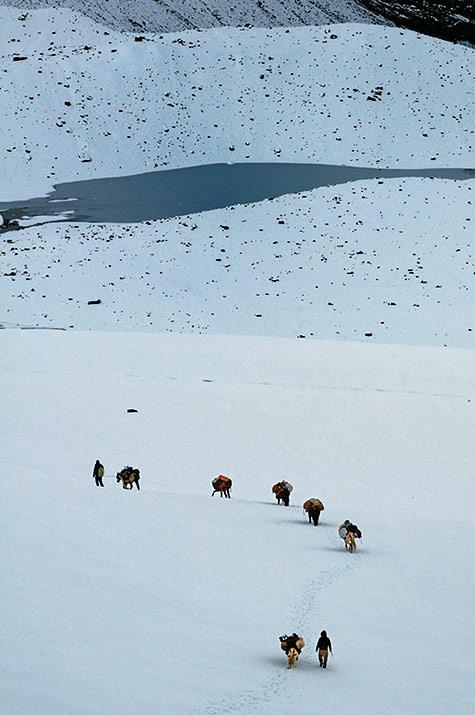
Days 4-5: Worries about leeches and mud-slips and rivers in spate are replaced by concerns about the vulnerability to exposure, the possibility of finding fuel on the treeless slopes of Kalihani Base Camp and, most of all, the durability of the hollow ice on the Kalihani glacier (4,035m), where every step needs to be measured, every inch of ice tested.
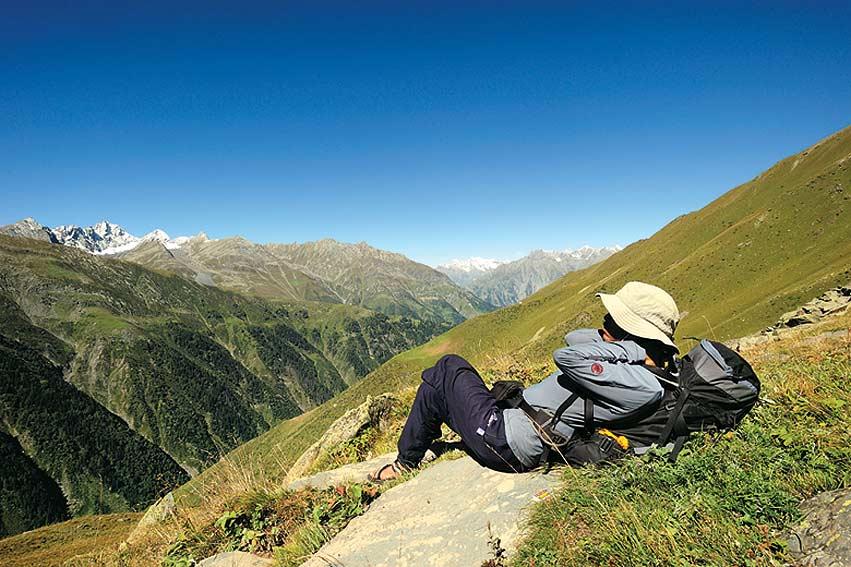
Days 6-8: Manu makes the most of a sunny day to dry the clothes he is wearing. The trail from Devi ki Marhi to the Gaddi village of Bara Bangal (2,882m) takes in 84 ridges and is called, unimaginatively, Chaurasi Dhar. Thamsar pass (4,878m), a two-day walk from the village, offers its own set of problems, beginning with oversized boulders at the very approach to a bridgeless stream perpetually in spate. The only way to cross this is to roll up your pants and walk across the frigid waters.
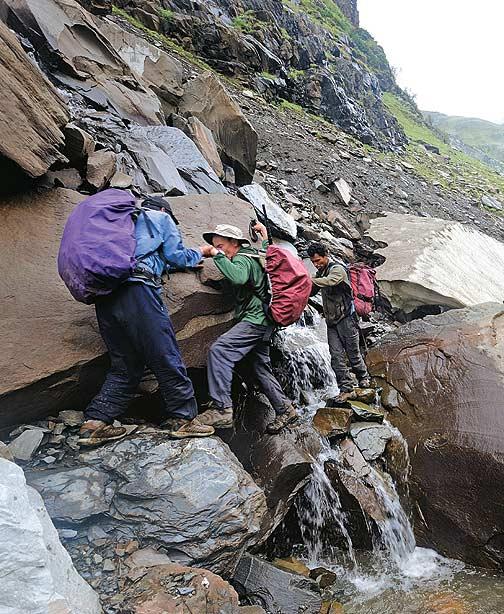
Days 9-10: A score of stream-crossings and waterfall-negotiatings are some of the lesser adventures at the fag end of the trek to Rajgundha. In a 'normal' season, trekkers can jump over the streams and walk across waterfalls. But the route was so abused by the thousands of Gaddis' sheep this season that we were happy merely to find level ground at Billing, not to mention friendly villagers who were kind enough to make us dinner.
Dharamsala
Gaddi tribe
Gaddi village


